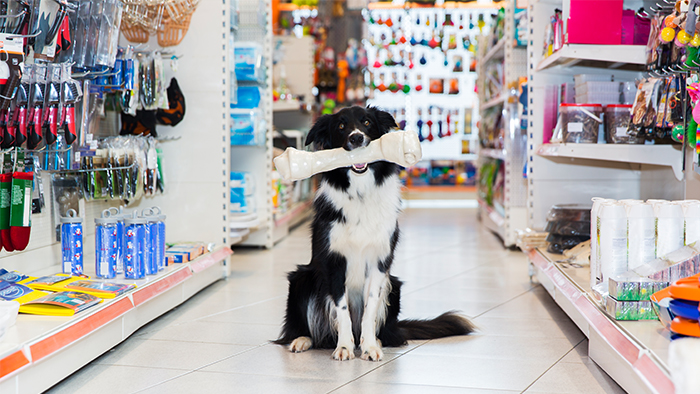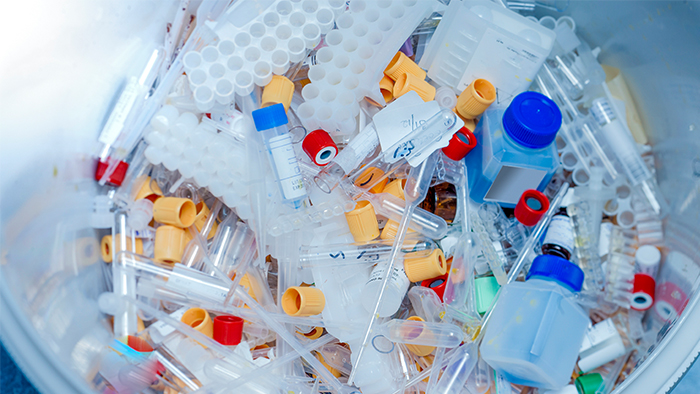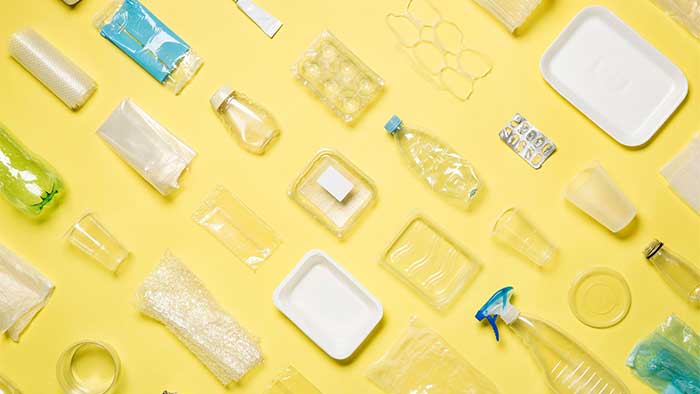Pets and Pet Supplies
This page covers retail operations that sell pets and pet supplies, and offer grooming and veterinary services. Waste management is one of the main issues facing these retail operations because they can generate hazardous and other regulated waste, including expired/returned pet medication, medical waste, and pesticide waste. The sale of pesticides (such as flea and tick treatments) are also regulated. Wastewater from grooming operations (both mobile and at fixed facilities) is regulated in some jurisdictions.
COMPLIANCE CONSIDERATIONS

Waste associated with pet departments is regulated by multiple agencies, including: Environmental Protection Agency (EPA), Department of Transportation (DOT), Drug Enforcement Administration (DEA), Occupational Safety and Health Administration (OSHA), State Environmental Protection Agencies, State Health Boards, and potentially local Publicly Owned Treatment Works (POTW).
The American Veterinary Medical Association has a "What is Waste" page with more information on veterinary waste.
Pet Related Hazardous Waste
Pet Medicine/Pharmaceutical Waste
Some waste pharmaceuticals must be managed as hazardous waste. Federal and state regulations impose requirements on pharmaceuticals that are considered hazardous waste. Hazardous waste is divided into two categories, listed wastes and characteristic wastes. Common "hazardous waste" medicines used in the veterinary field include:
-
P-listed waste (pharmaceuticals): arsenic, warfarin, epinephrine (but not epinephrine salts), nitroglycerine, certain chemotherapeutic agents
-
U-listed waste (from lab or clinic): acetone, chloral hydrate, ethylene oxide, formaldehyde, mercury, phenol, reserpine, certain chemotherapeutics
-
Characteristic hazardous wastes (e.g., ignitable, reactive, corrosive, toxic)
Pharmaceuticals may be sent through reverse distribution if accepted by the manufacturer. Hazardous waste pharmaceuticals must be sent to a permitted treatment, storage, or disposal facility through a licensed hazardous waste hauler. As always with hazardous wastes, some state regulations are significantly stricter than federal regulations.
The RCC Hazardous Waste page has more information.
Controlled Substances
Controlled substances are specific drugs, such as some pain killers, that are regulated by the DEA. The DEA requires retail facilities with controlled substances to register and to follow specific procedures for handling and disposal of controlled substances. The DEA generally requires that controlled substances be transferred only to other registrants (i.e., DEA-registered reverse distributors), that they be destroyed (e.g., by incineration), and that certain records be maintained. While some drugs may be regulated by DEA as controlled substances, a smaller number will be both controlled substances and hazardous wastes. Hazardous waste haulers must be DEA-registered to carry these drugs.
Other Hazardous Waste
There are also some non-medicinal products that may need to be managed as a hazardous waste. For example, some types of water treatment solutions for aquariums have corrosive characteristics and may be considered hazardous waste. You should perform a hazardous waste determination before disposal of any waste.
Medical Waste

In many jurisdictions, medical waste such as bandages, culture dishes, medical gloves, instruments or lancets, medical sharps (needles), and swabs, may be subject to regulation as medical waste. Typically, facilities are required to have closed and marked "biohazard" red containers with a puncture resistant bag or lining for collection of medical waste onsite. Specific requirements may apply for packaging, storing, and transporting medical waste. Some states require training, tracking, and recordkeeping. Certain types of infectious medical waste may also be subject to federal requirements for transportation. The Veterinary Compliance Assistance website has more information.
Pet Food Waste
Unused pet food from returned, damaged, or expired products can be evaluated for composting or possible donation (there may be safety concerns with donating damaged or expired pet food, and donation would not be appropriate for returns associated with recalls.) If appropriate, donating the food to a farm would both reduce landfilled waste and provide food for another animal. The EPA's Food Recovery Hierarchy was developed for human food waste, but can be used as a guide for finding alternative options for pet food.
Pet Care Products – Pesticides
Pesticides, including products designed to kill or repel fleas and ticks, are regulated by the EPA under the Federal Insecticide, Fungicide and Rodenticide Act (FIFRA) and also by state and local governments. There are requirements for the registration, labeling, and handling of pesticides. The RCC FIFRA Fact Sheet has more information.
Wastewater from Mobile Grooming Operations
Some local municipalities regulate wastewater from mobile grooming operations. Wastewater should never be dumped directly into storm drains. Drain wastewater into a sewer system where it can be treated to remove the detergents. Trapping fur and hair is important to prevent clogging of plumbing and sewers.
SUSTAINABILITY
The Pet Industry Sustainability Coalition offers additional resources on sustainability in the pet industry.
Tags
-
Hazardous Waste
-
Pesticides
-
Solid Waste
-
Water


